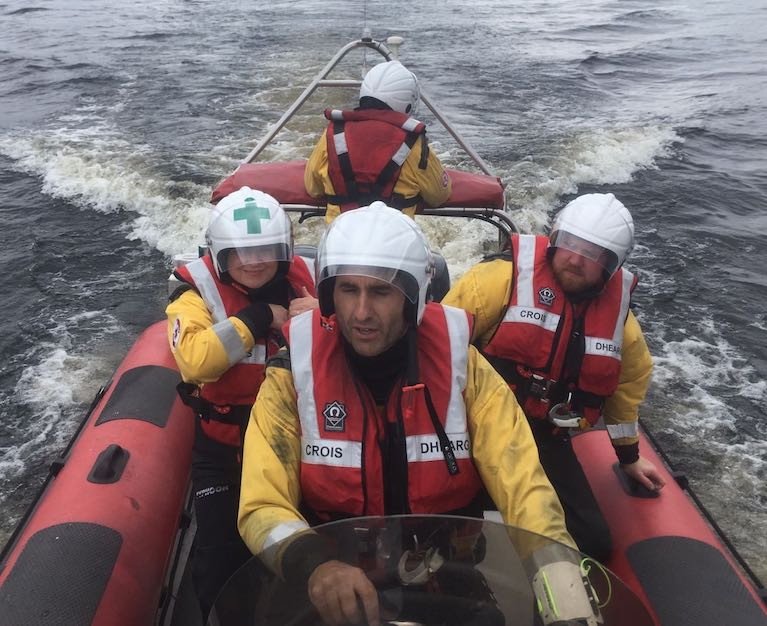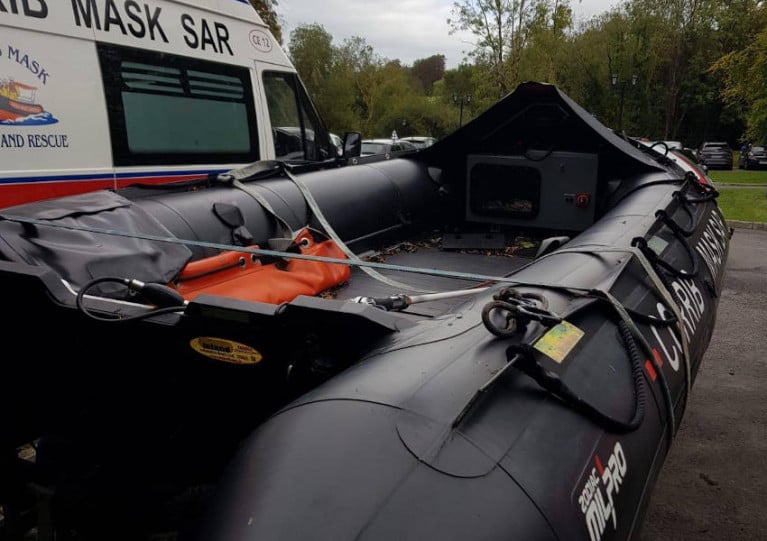Displaying items by tag: Corrib Mask Search and Rescue
Gardai Investigate Engine & GPS Theft from Corrib Mask Search & Rescue Craft
A west of Ireland community search and rescue service says it is “devastated” after the theft of up to 13,000 euro of equipment from its Zodiac rescue craft.
As Afloat reported earlier, a Yamaha engine and GPS plotter were stolen and wires cut from the Corrib Mask Search and Rescue unit’s vessel in Cong on the Galway-Mayo border at the weekend.
The unit’s chairman Vincent Heneghan said it has had to inform the Irish Coast Guard that it cannot respond to call-outs on Lough Corrib until such time as new equipment is acquired and extensive damage repaired.
“We are devastated – we estimate the total value at 12,000 to 13,000 euro and some of this money came through Government Clár funding and through a local Cornamona community cycle held several years ago,” Mr Heneghan said.
The vessel is one of two used by the unit for rescues on loughs Corrib and Mask, and the unit responds to up to ten call outs annually. This year has been particularly busy with far more kayakers and other recreational craft on the water during the Covid-19 pandemic.
The Corrib vessel has been located at Cong since its boathouse in Ashford was damaged by storms last winter. The unit hopes to move to a more secure location at Lisloughrey.
Corrib Mask Search and Rescue was established in 2004, and is a voluntary asset for the Irish Coast Guard and works closely with the Garda, government departments and statutory bodies.
The theft of the equipment is being investigated by Ballinrobe Garda Station in Co Mayo, and anyone with information is asked to contact it via Claremorris Garda Station on 0949372080 or the Garda Confidential line on 1800 250 025.
Appeal After Motor & GPS Stripped From Lough Corrib Rescue Boat
Corrib Mask Search and Rescue is appealing for any information after its newly acquired RIB was stripped of its motor and GPS equipment.
The Zodiac boat, which was stored in the Cong area, was targeted some time between Thursday (17 September) and yesterday (Saturday 19 September) and stripped it of its Yamaha outboard engine and GPS plotter — valued together at upwards of €10,000.
Anyone in the vicinity of Cong who may have seen or heard anything, or is aware of someone trying to sell the missing parts, is encouraged to contact Claremorris Garda Station at 094 937 2080 or the Garda Confidential line at 1800 250 025.































































